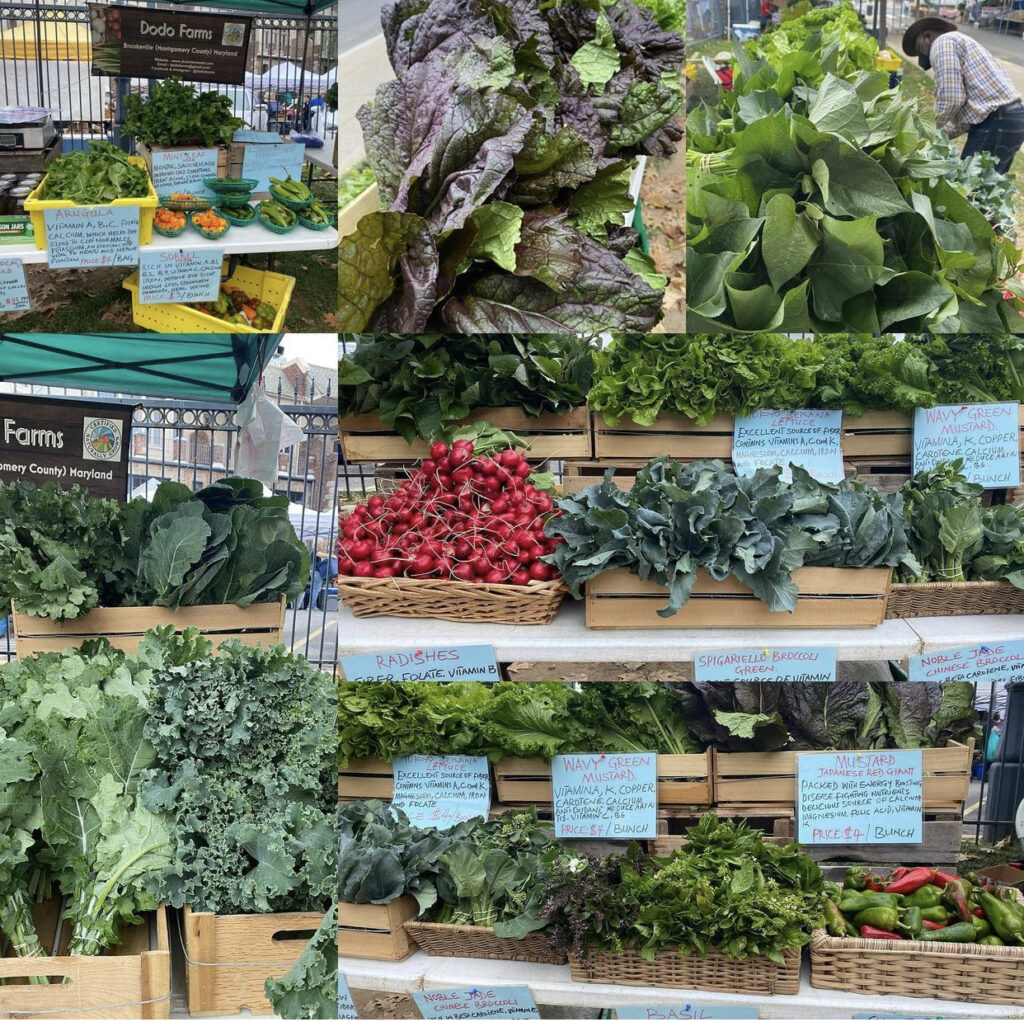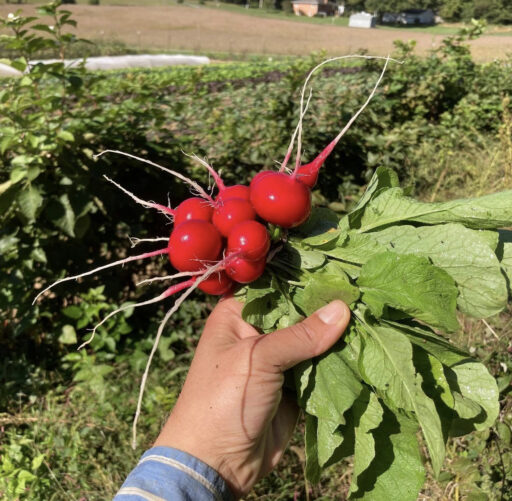In celebration of Black History Month, the Food Council is highlighting Black-owned MoCo Made businesses. Tope Fajingbesi is the co-founder of Dodo Farms, a trusted source of fresh, local and Certified Naturally Grown produce in Montgomery County. Dodo Farms produces leafy and root vegetables without using chemicals, pesticides, fertilizers, herbicides or GMO seeds. We had the opportunity to chat with Tope about Dodo Farms’s journey since its inception 5 years ago, and her experiences as a Black farmer.
How did Dodo Farms start?
I would actually say Dodo Farms found me. When my husband came to the U.S, the only thing he wanted to do was farm. Although he had over 10 years of experience in Nigeria, we took the time to learn and understand how it is done in America. It will be our 5th year in April 2022!
What is your favorite aspect of farming?
The family we create–from Silver Spring to Dupont Circle. There is also something magical that comes with being a retail farmer. To be able to look somebody in the eye and tell them this food is good, knowing they can come find you next week if it is not. There is a level of trust you lose when you go to grocery stores, compared to being able to see the farmer. It takes trust for that relationship to come to life and I would never take that for granted.
Can you describe any challenges you have faced specifically as a Black Farmer?
The obvious challenge is racism and people not buying from you because of your skin color. But specifically in Montgomery County, it is difficult for Black farmers because the resources aren’t there. It is impossible to farm without land, and 93.7% of farmers/landowners in MoCo identify as White. If you don’t have farmland, you can’t control the input.
For those who rent, if the land owner closes the space or shuts off the water, you have no control. You also can’t do as much as you would like to do as a farmer of color without the support, land, and financial resources. Farming more so than any other industry requires land, labor, and capital. We don’t own the land, we don’t have access to labor, and access to capital is a challenge. Buying power is low, making it a very difficult terrain for people of color. That is why most [Black] people don’t stay.
Farms run by Black Americans make up less than 2% of all of the nation’s farms today. What changes do you feel are necessary to increase that number?
Let people of color have their land back. There used to be 14% land ownership in terms of Black farmers in the U.S, and that
has declined to less than 2% in the matter of 10-20 years. Why? Because people have lost their lands. Additionally, there is a lot of structural racism in the system. When Black farmers do go to get resources, the first thing you are met with is the list of reasons why they won’t succeed. However, there should be more focus on the reasons why it is possible. Encountering barrier after barrier and hearing “no” several times have psychological consequences. Even when the grant or opportunity is easy, the gatekeepers have already subconsciously instilled in us that we can’t cross the gate so we don’t even want to go ask for that grant, land, or opportunity.
The barriers faced by people of color to accessing land need to be removed. Access to land doesn’t just mean ownership of land, it also refers to long term leases. MoCo for example has a 93,000 acre land reserved for agriculture, and should be able to produce the majority of the food people consume in the county. If we want to be a state or county where food is produced where there is food security, where we reduce the 10% poverty rate in the state, we need to look at access to land and capital for people who don’t look like the gatekeepers.
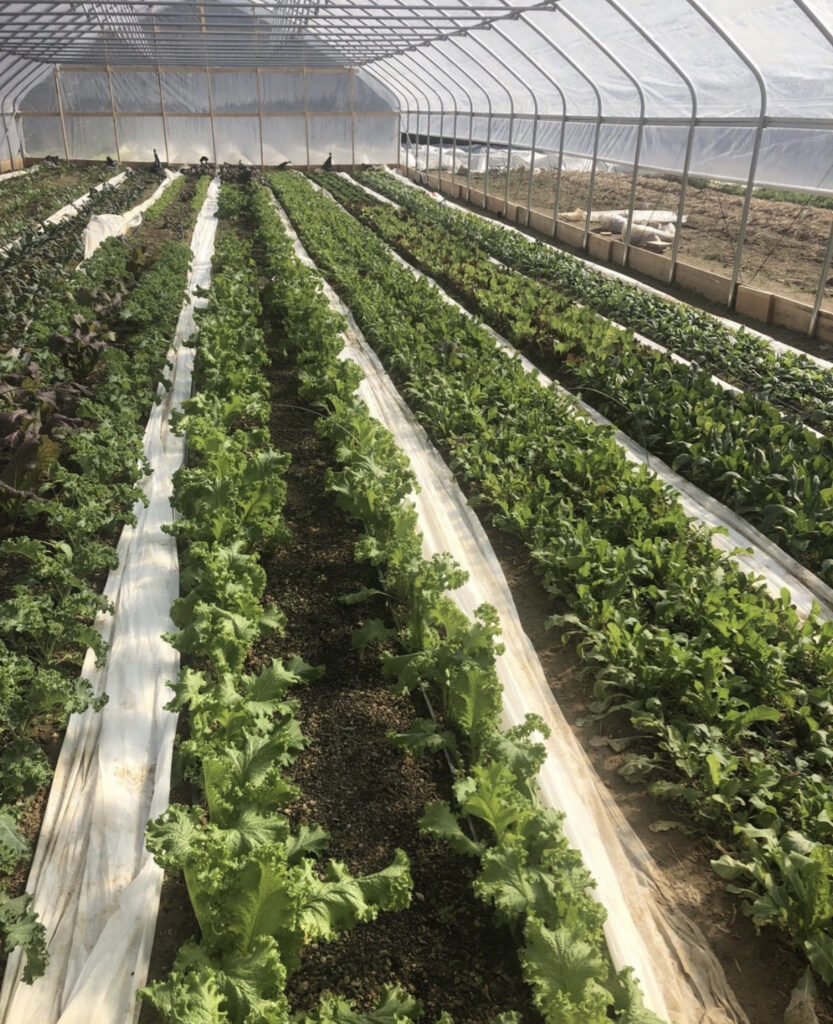 What kind of resources or actions should the Food Council and other organizations in the County provide to elevate Black farmers?
What kind of resources or actions should the Food Council and other organizations in the County provide to elevate Black farmers?
Educate MoCo residents about the history of farming in the county, the indigenous people that owned the land, and the Black people that farmed the land. If people understand the impact of people of color in terms of agriculture and the food system, they would have more compassion.
There needs to be more facilitation between landowners and land seekers on a county level. There is an abundance of land, and there is a demand for land. Unfortunately, the scale is tipped, in terms of the supply being held by people who don’t look like me, and the demand being from people who look like me. There needs to be something to bridge that gap, and I hope the Food Council can work on finding a resolution for that gap.
More often than not, our skin color is what gets us denied when we try to lease land. I don’t think there is a farmer of color that wants to seize anybody’s land, we are ok with a long term lease–we just want to work. What is the point of land not being made use of when there is someone that is willing to utilize it for 10-20 years? Therefore, there needs to be a third party that both sides trust facilitating these discussions.
What are some accomplishments and successes of the farm?
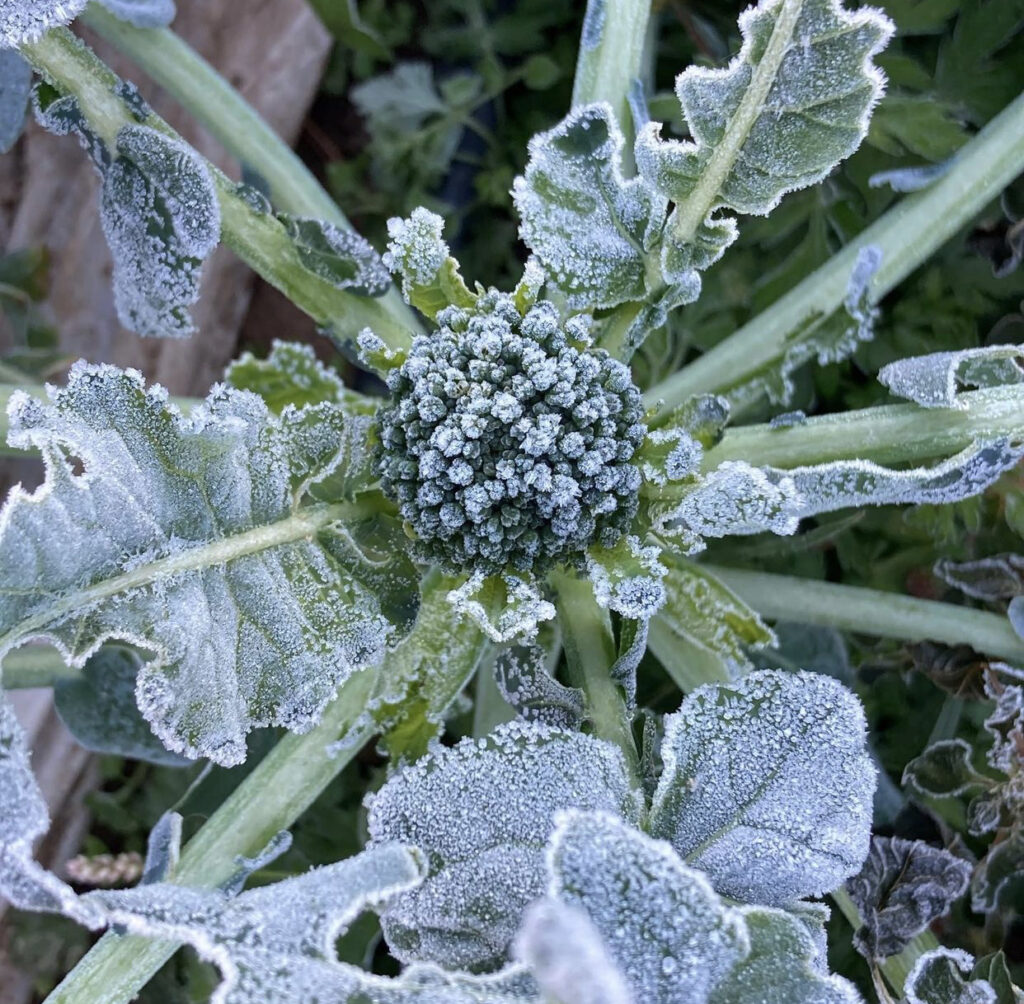 Something I enjoy about farming is the ability to provide food that is good. Before farming, I thought food was food. But the more I got into the industry I realized that food is health. Being able to provide naturally grown, pesticide free, chemical free, natural food is our biggest accomplishment. Putting people before the profit is our biggest accomplishment.
Something I enjoy about farming is the ability to provide food that is good. Before farming, I thought food was food. But the more I got into the industry I realized that food is health. Being able to provide naturally grown, pesticide free, chemical free, natural food is our biggest accomplishment. Putting people before the profit is our biggest accomplishment.
Another thing I like is the Farm to Food Bank program in partnership with the Food Council, Manna, and the Office of Agriculture where we are able to provide food to those who don’t have as much as we do in the county. In the past, farmers would donate food but now the farmers get to sell the food. In the process of trying to eliminate food insecurity we don’t want to create poor people. Being able to participate in that program is a great accomplishment.
If we are doing all of these things on one acre, imagine if we had the opportunity to expand and grow–we would be able to do so much more!
Who/what has been your inspiration for success in your career and why?
Personally, my biggest inspiration when it comes to agriculture is my husband. He is the hardest working human I’ve met in my entire life. He is optimistic even when times are tough. He reminds me why we’re doing what we’re doing, and the importance of serving people good food. He came to the U.S 15 years after me and hit the ground running. The American dream is not what other people say it is but what you make of it–you can come here, work hard and achieve that dream.
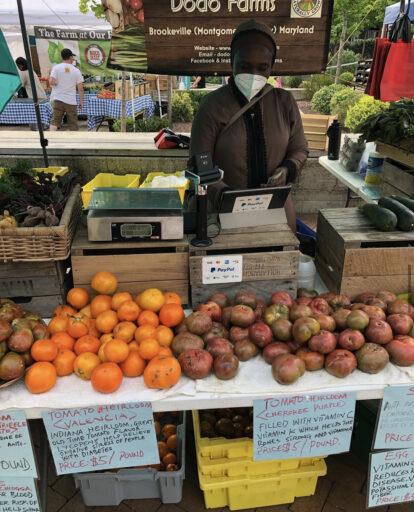 What advice would you give to aspiring Black Farmers?
What advice would you give to aspiring Black Farmers?
Know what you want, and know why you are coming to agriculture because it is a difficult industry. If you want it bad enough, nothing will be a deal breaker. However, if you are unsure, everything is going to be discouraging. Find what you like and go for it.
This is not something you can do alone. Find allies, even the people who tell you no will have their good days.
Montgomery County Land Link is a good resource for finding potential landlords. FreshFarm Farmers Market and Crossroads Community Food Network are good avenues to market and sell your products.
Dodo Farms is available at the downtown Silver Spring Farmers Market (Saturdays 9-1pm) and Dupont Circle Farmers Market (Sundays 8:30-1:30 p.m.), April to December.
Learn more by visiting dodofarmsmd.com and follow them on Instagram, Twitter, and Facebook!

